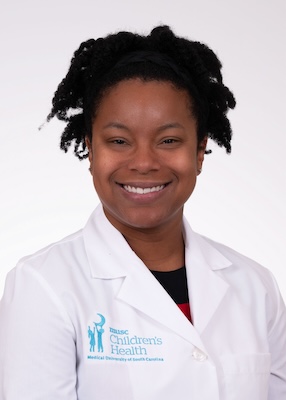
Jordan Bowe, Psy.D.
- Psychology
- Developmental-Behavioral Pediatrics
- Pediatric Adolescent Medicine
- Psychiatry - Youth
- Charleston, SC
The Children’s Day Treatment Program provides intensive, comprehensive intervention to children and adolescents with severe behavior disturbances using a “day treatment” model. This is a less costly alternative to inpatient care yet still provides the multi-faceted, long-term care required.

Stabilization of children and adolescents from ages 6 to 17 years with severe behavioral disturbances.
Treatment in a community and family-based program and offers time-limited therapeutically intensive services in a safe and structured environment.
Assessment of functioning to modify and plan treatment for meeting specific and individual needs.
Reintegration to home, school, and community with an enhanced ability to manage personal lives.
Each patient sets an achievable daily goal and a home-based goal that is related to problematic behavior. Goals are reviewed with their parents or caregivers daily, who provide daily feedback.
Patients are encouraged to express feelings and issues in a private, safe setting to identify problems and to uncover the sources and consequences of them. We then work with the child to develop strategies to improve coping and social skills.
The staff works with the caregiver on behavioral interventions and alternatives to managing problematic behavior and methods for increasing or reinforcing more desirable behavior.
This therapy assists patients and their parents or caregivers in recognizing and building on strengths and in identifying alternative ways to manage any problematic behavior — while being supported, guided, and supervised by the family therapist.
The process groups help identify behavior patterns and discover productive ways to respond to different situations and feelings, which will facilitate problem identification, processing, and resolution. Topics include: child safety family relationships, school issues, drugs, male/female relationships, anger and stress management, self-esteem, social and daily living skills, constructive physical activities, problem-solving strategies, communication techniques, and positive coping skills.
STAR is not a school, but we do provide one hour of homebound instruction. Patients are expected to bring books and assignments from their school. STAR CDT teachers will be in contact with each patient’s school to determine specific educational and emotional needs.
RPS groups build skills in managing social interactions at home, school and in the community. Topics include: problem solving, conflict resolution, interpersonal skills, and communication skills. Therapeutic activities include gross motor activities, cinema therapy, therapeutic board games, and creative art projects to teach and strengthen daily living skills, developing body coordination, physical health, and self-esteem.
If the patient is taking medication, a psychiatrist or RN will educate the family on the purpose, dosage, administration, contraindications, side effects, food/drug interactions, and written information on each prescribed medication.
Every child and situation is different and need to be assessed before we can determine whether the STAR program is appropriate. Patients are typically referred for the following reasons:
MUSC has a doctor or provider for you. Search by location, keyword, or specialty.


